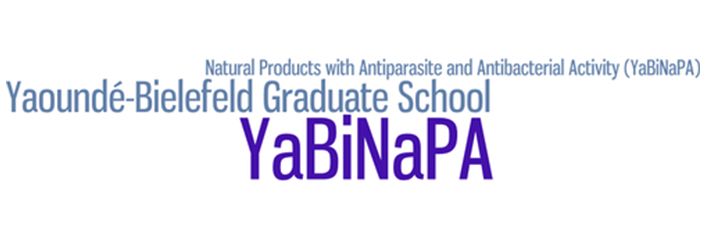SDG Graduate Schools
Find out more about the German Academic Exchange Service's (DAAD) SDG Graduate schools programme and its other projects.
The SDG Graduate Schools programme is funded by the German Academic Exchange Service (DAAD) with funds from the German Federal Ministry of Economic Cooperation (BMZ). The programme seeks to contribute to the Sustainable Development Goals (SDGs) formulated by the United Nations in the Agenda 2030. This is achieved through partnerships between higher education institutions in Germany and the Global South. Education is highly important for achieving the SDGs and SDG 4 specifically calls to “ensure inclusive and equitable quality education and promote lifelong learning opportunities for all.”
The programme’s overall objective is to provide opportunities for academic exchange and offer postgraduate students high-quality training in fields relevant for achieving sustainable development. Furthermore, networks between academic institutions and stakeholders from politics, industry and civil society are built.
Currently, seven SDG Graduate schools are funded by the DAAD. The regional focus lies on the African continent, with four SDG Graduate schools built up in cooperation with African countries and two further schools in Latin America and one in Asia.

The project RoHan is part of a new DAAD scheme, funded by the Federal Ministry for economic co-operation and development (BMZ), on the implementation of “SDG Graduate Schools”. The University of Rostock and the Leibniz Institute for Catalysis as well as the Hanoi University of Science and Technology (HUST) and the VNU University of Science co-operated to implement the ROHAN Graduate School from 2016 till 2020. In the second phase, from 2021 till 2025, the collaboration will establish a German-Vietnamese Center for Catalysis (GeViCat). The aim of the project is to foster the development and establishment of catalysis technologies and processes through the training of qualified Vietnamese scientists able to assume leadership positions in both industry and academia. Focusing on rightful high-quality education and promoting life-long learning opportunities for all, as well as promoting gender equality and empowering women could have a strong impact on the achievement of the Sustainable Development Goals in 2030.

The Doctoral Studies Support Program (DSSP) on Environmental Peace Building and Development in Colombia was launched in December 2017 with the signing of the Cooperation Agreement between the Center of Development Research (Zentrum für Entwicklungsforschung – ZEF) at the University of Bonn and the Institute of Environmental Studies (Instituto de Estudios Ambientales – IDEA) at the Universidad Nacional de Colombia. The DSSP is financed by the DAAD, within the framework of the Sustainable Development Goals Graduate Schools program. The aim is studying the complex nexus between the ecosystem basis in different territories of this country and several cultural features of the Colombian population, including economic, social, political, symbolic and technological perspectives in the framework of the ‘post-agreement’. The interdisciplinary German-Colombian production of knowledge based on the acknowledgment of local wisdom will provide some ideas within the current context, in which the recent signing of the Peace Agreement puts into question the way society searches for solutions to the historical environmental pressures related to extractivism and aims at strengthening environmental protection, participation and inclusion of the population in decision-making for environmental conflicts.

trAndeS - Advanced Studies on Inequalities and Sustainable Development is a joint initiative by the Freie Universität Berlin (FU Berlin) and the Pontificia Universidad Católica del Perú (PUCP). It is supported by the German Academic Exchange Service (Deutscher Akademischer Austauschdienst, DAAD) with funds from the Federal Ministry for Economic Cooperation and Development (Bundesministerium für wirtschaftliche Zusammenarbeit und Entwicklung, BMZ). trAndeS seeks create and promote knowledge that can contribute to the achievement of the United Nations’ Sustainable Development Goals. It focuses its efforts linking two dimensions: sustainable development as addressed by the 17 Sustainable Development Goals (SDG) that the United Nations established for the year 2030, and the serious socioeconomic, sociopolitical and socioecological inequalities that persist in the Andean region. Our goal is to identify how these inequalities present challenges to achieving SDG targets how progress toward these targets can contribute to reduction of these inequalities.

The German-Ethiopian SDG Graduate School entitled Climate Change Effects on Food Security (CLIFOOD) aims at empowering young academics of higher education institutions on the African continent focusing on SDGs 1 (no poverty), 2 (zero hunger), 3 ( good health and well-being), 13 (climate action), 15 (life on land) and 17 (partnerships for the goals). CLIFOOD was established by the Food Security Center, University of Hohenheim in Germany, and Hawassa University in Ethiopia, by embracing the development of the Eastern African region. a consequence of the El Niño weather phenomenon.Insecurity by high population growth. Main objective of CLIFOOD is the education of African students at the post-doctorate level.

The interdisciplinary Graduate School Performing Sustainability is a collaborative training network for graduate students by the University of Hildesheim (Germany), the University of Maiduguri (Nigeria) and the University of Cape Coast (Ghana). The initiative focuses on innovative research that brings together approaches from performance, arts and culture to bear on sustainable development as defined in the UN Sustainable Development Goals (SDGs). A specific focus lies on issues of peace and conflict resolution.

YaBiNaPA is the Yaoundé-Bielefeld Bilateral Graduate School for Antiparasitic and Antimicrobial Natural Products Discovery funded by DAAD to strengthen the capacity of Lecturers, Researchers (Master and PhD students) in the domain of phytomedicine for sustainable development in developing countries as planned by the 2030 agenda of UN on the theme "Transforming our World". Thus the Graduate School has the aim to provide specialized experts and lecturers with updated training at Masters, Doctorate, and Postdoc levels by making available its expertise, equipment, database and by organizing seminars, workshops and research stays in Germany and therefore move towards joint development and innovation.


